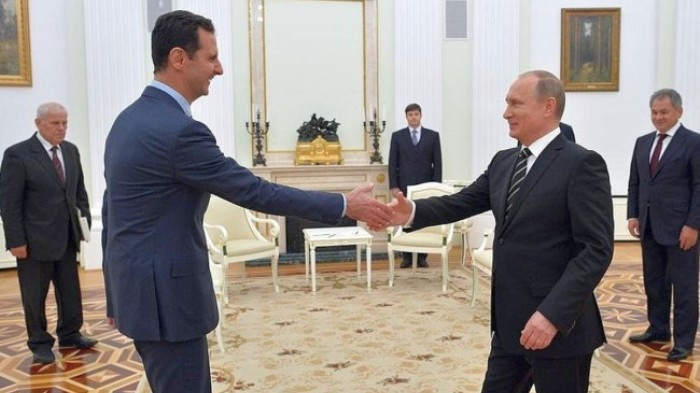The Syrian Strategy of Russia

On Tuesday, Kremlin hosted President Bashar Assad to discuss possible solutions to the Syrian crisis. After Moscow's previous plans were rejected by the US, Saudi Arabia and their allies, Putin shifted towards a military option and tilted the balance in Syria in his own favor. Washington, despite its initial objection, is now pondering negotiations with Moscow to determine the fate of the Syrian civil war, albeit bypassing Iran. Iranian Diplomacy has interview Mahmoud Shouri, senior research fellow and expert in Russian Affairs in Center for Strategic Research, Expediency Council.
IRD: How feasible is Russia's plan for Syria considering that it gives Bashar Assad a ceremonial role.
MS: Since the beginning of crisis in Syria, Russia was looking for a political solution and tried to fulfill its responsibility through dialogue with various actors engaged in the struggle. But these efforts apparently failed. Russia's proposals varied from constitutional reform, relegation of Assad's position and redefinition of his role in Syria's future. The Syrian crisis was facing a dead-end before the Russians intervened. But Moscow cannot advance with no political offer at hand.
Other actors involved in the crisis seek a Syria without Assad and categorically reject his participation in the future political process. So Russians are trying to handle the issue such that the opposition, regional powerful states or even West do not gain a foothold in Syria.
IRD: Russia's military intervention is viewed as a diplomatic feat by some observers. Do you think Moscow follows any middle-term goals through this initiative, or it's seeking long-term goals?
MS: Russians now have the upper hand in Syria with this move, and other actors have to redefine their role according to Russia's position in Syria. Moscow took the risk to both break the deadlock and stir reaction from other parties, either in form of resigning to negotiations and accepting Moscow's terms and conditions, or accepting defeat in Syria.
IRD: Some observers believe that Russia's military intervention may aggravate the situation and reinforce ISIS. How likely is that scenario?
MS: Intensification of war can prompt the other side to reinforce and reorganize its forces. Following Russia's attacks, there were reports that anti-Assad forces are planning to unite, and ISIS may start to act directly against the Russian forces. But it is not clear how these plans could turn into reality. After several years of battle, parties to the war lack adequate power and motivation to step up the war.
IRD: Some media have reported of talks between foreign ministers of Russia, the US and Saudi Arabia to find a solution that bypasses Iran. Thus, there are rumors that Russia may drop its call for continuation of Assad's presidency. Is this a likely scenario?
MS: What Russians have announced time and again is that their strategy is not Assad-centered. But it is not clear how negotiable that issue is. It is hardly unlikely that Moscow comes to an agreement without gaining significant concessions. Kremlin knows that it should talk to the West with the language of power. So I don't think at least in the short-term we will be witnessing an agreement between Moscow and the West. Even if that happens, West has to give more than it takes.

